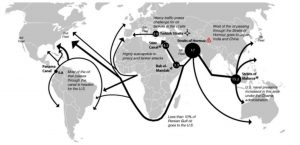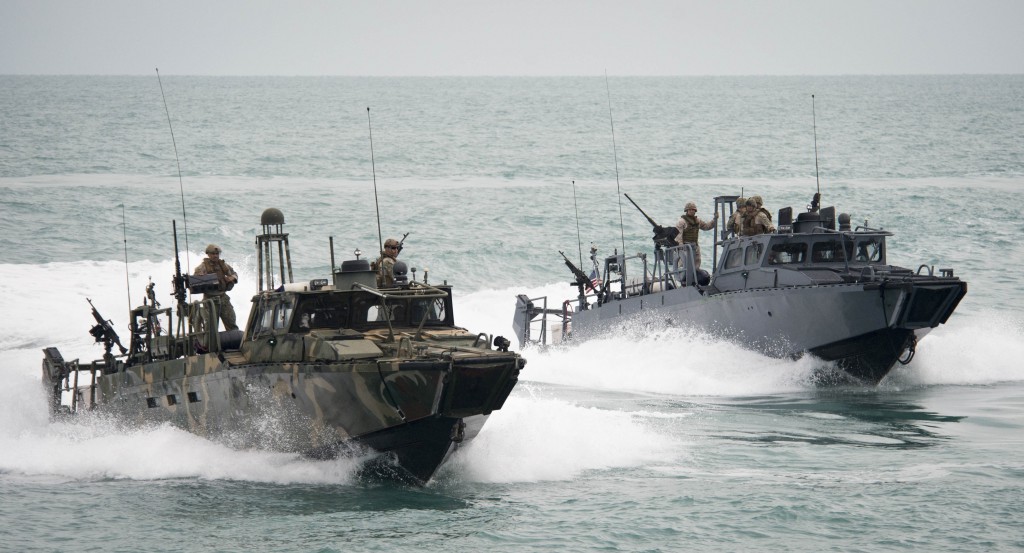The Arabian Sea, especially Strait of Hormuz, has always been of great importance because of neighboring resource-rich countries. A significant amount of world oil trade passes through this. This part of the Arabian Sea is of prime significance for almost all the regional and global players including India, Pakistan, China, and the US.
read more How Chinese Geopolitics harms Southeast Asian Unity

It is specifically important for India, as India is a rapidly developing country needing resources for its development. India faces a few difficulties here. The strategic location of this part is not very suitable for India. This part lies in the west of India under the influence of hostile Pakistan. Pakistan, at the moment, is building its naval power in the Arabian Sea and if it is able to do that, it can cut down the Indian oil supplies leaving India short of petroleum resources. On the other hand, India feels a threat from China as well, as China will be using Gwadar, as its naval base after the CPEC gets operational. Because of all this, India has heavily invested in Chahbahar port for keeping its presence in the region.
Pakistan is also very much interested in taking the control of the sea as it can cut down supplies of India leaving it dependent on Pakistan for resources. If Pakistan is able to control this part of the sea, it will be controlling one-third of the world’s oil supplies, which will give it an edge over its competitors especially India. In addition, Pakistan is building its economic corridor with China, which can only be functional if it has the complete control of this part. For this reason, Pakistan is trying to build good ties with Iran as well. Considering its interests, Pakistan is working on a two-fold strategy. One, it is trying to secure its coastal line from sea-borne threats and two, to achieve the capability of power-projection in the Arabian Sea and the Persian Gulf.
If we try to make sense of Global Power’s interest in the region, we come to know that both the economic leaders of the world, The United States of America and China, are trying to get control of the Strait of Hormuz. The US considers China a threat so it cannot let it dominate in the sea.In order to achieve this goal, the US uses India to contain it. China, on the other hand, is building an economic corridor passing through Pakistan and if this corridor (China Pakistan Economic Corridor) gets operational soon, it will have many advantages for China. One, it will be able to avoid the South China Sea where it faces many rival states capable of putting a naval blockade, provided any conflict arises in the region. Two, by building a naval base at Gwadar, China will literally be sitting at the mouth of Strait of Hormuz. Such close proximity of China on global oil resources can compromise American hold on the oil trade. CPEC also shortens China’s trade route by 12000 kilometers, which cuts down the cost of the trade by a good amount making CPEC much more beneficial than China’s traditional trade route.
read more Geopolitical and Strategic Landscape of South China Sea
In short, Persian Gulf, at the moment, is turning out to be the most important choke point of the world. It provides control of a major chunk of the world’s oil resources and for this reason, all, the regional and global players, are taking interest and striving to take maximum control of it.This situation has given rise to the intense power struggle in the region. Whoever manages to seize the maximum control of the Persian Gulf and is able to maintain it, will control the one-third of the world’s oil economy.
writer
Anwaar Gillani
(Presidential Gold Medalist)
Student of International Relations,
National Defence University, Islamabad, Pakistan.
